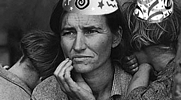To what extent is the law on adoption fair critically evaluating the role and discretion of the judiciary in adoption proceedings while taking into account the implications of the Human Rights Act and the erosion of family values.
Adoption in England and Wales is governed completely by statute. On 30 December 2005, the principle statute governing adoption, theAdoption and Children Act 2002was fully implemented. It represents the most radical overhaul of adoption law for 26 years, replacing the outdatedAdoption Act 1976thereby making the child's welfare paramount and modernising the entire legal framework for domestic and inter-country adoption. The law on adoption is now in a much better position then it used to be, thanks to the ten years worth of reform proposals.
"In December 2000 the Government published a White Paper on adoption (Adoption - a new approach; Cm 5017, Department of Health, December 2000). This set out the Government's plans to promote greater use of adoption, improve the performance of the adoption service, and put children at the centre of the adoption process. The White Paper built on the proposals of the Prime Minister's Adoption Review, which were published for consultation in July 2000 (Prime Minister's Review: Adoption; Performance and Innovation Unit, July 2000). The White Paper included a commitment to introduce new adoption legislation in 2001.
The Government believes that the interests and welfare of a child (throughout his/her life) should be the focus of the adoption since it has lifelong implications. For this purpose the Act makes the welfare of the child the paramount consideration for courts and adoption agencies in decision-making relating to adoption.‘TheAdoption and Children Act 2002has updated the law to align adoption law with theChildren Act 1989. The Act has improved performance of adoption services and promotes greater use of adoption for looked after children. The Act also introduces some amendments to theChildren Act 1989. A feature of these amendments, contained inPart 2, Sections 111–122,is the range of alternatives to adoption that might nevertheless provide varying degrees of permanence and legal certainty. ‘[1]
Foremost, the Act aims to encourage more people to apply to adopt and build confidence in the adopter assessment process. The Government is now committed to provide an independent review where an adoption agency intends to turn down a prospective adopter's application. The Act also includes powers enabling the appropriate Minister to establish a mechanism, which may be run by an independent body, to review qualifying adoption agency's determinations. The intention is that the independent review mechanism will review, at a prospective adopter's request, applications that adoption agencies have indicated they are not in favour. It is also intended to use the independent review mechanism to review qualifying adoption agency determinations about the disclosure of information concerning a person's adoption. The mechanism could be used to review other determinations made by adoption agencies. This places a duty on local authorities to make arrangements for the provision of adoption support services, as specified in regulations. This duty will be used to deliver the new framework for adoption support services (including financial support) It also provides a new right to request and receive an assessment of needs for adoption support services. The assessment will link with other local authority functions and local education authorities and health services, where such needs are identified, with the aim of identifying a coordinated package of support to help adoptions succeed.[2] Adoption is defined like so by Wikipedia as:
‘A process whereby a person assumes theparentingfor another who is not their child and, in so doing, permanently transfers allrightsandresponsibilitiesfrom the original parent or parents'.
Under the new act, the effect of an adoption order is still to irrevocably transfer the child from one family to another by severing the ties between the biological family and the child. I feel the new Act is to a large extent fair as one of its main aims are to enable more children to be adopted, mainly by relaxing the pre-requirements of potential adopters. It therefore becomes a more child centered system. It looks at ensuring birth parents understand the impact of consenting to an adoption. In takes into account the length of time disputes take to be settled and looks to resolving them early so that adoption itself does not become a fait accompli. Previously children had next to no say on adoption proceedings. Today the voice of the child can be heard through reports to the court. Now there is also an effective case management system to reduce delay in the decision making process.
They propose to achieve these aims through proceedings under the Act which are subject to the overriding objectiveset out inRule 1 of the Family Procedure (Adoption) Rules 2005of enabling the court to deal with cases justly, and is expressed to include that: [3]
- · Parties are on an equal footing
- · Cases are dealt with in ways which are proportionate to the importance and complexity of issues
- · Cases are dealt with expeditiously and fairly
- · Cases are allotted an appropriate share of court resources
This is also in line with the no delay principle under theChildren Act 1989.Re C(adoption disclosure to father). It is also emphasized by the ‘paramountcy principle'
which obliges the court and agency to make decisions on whether to dispense with the consent of the birth parent if deemed incapable on grounds such as mental illness. It also obliges the court or adoption agency to consider that in general any delay is likely to prejudice the child.Section 1(4)of the Act provides a welfare checklist tailored to the particular circumstances of adoption that must be adhered to by the court and adoption agencies. In doing so, the Act aligns adoption legislation with the relevant provisions of theChildren Act 1989.
Section 1(3) of the Actobliges the Court to consider that delay in decision-making is likely to prejudice the welfare of the child. This provision is further supported bysection 109which imposes a duty on the court to manage cases by drawing up a timetable and giving directions for the purpose of ensuring that the timetable is adhered to. Avoidance of delay is further ensured by theFamily Procedure (Adoption) Rules 2005which provide a procedural code for the operation of the Adoption and Children Act in all three tiers of court in England and Wales. [4]
The role played by judges can be seen in placement orders, which involve the child living with his or her prospective adopters for a specific period that acts as a trial run. The judges are expected to communicate closely with adoption agencies and local authorities and ensure that the child is placed with suitable and capable parents, taking into account special needs like learning or physical disabilities. If the child has physical disabilities, is the home the child is being placed in conducive for his or her growth? Does the family the child is being placed with have sufficient financial resources to cater to the child's learning needs?
The children will only be placed (more permanent nature) if the criteria are met. For instance what impact would a ten year Chinese speaking Asian child have if he or she was placed in the home of say an English speaking American family, as opposed to a situation where an infant of Chinese origin is placed with that same English speaking American family? In terms of language and communication the infant would definitely be able to adjust better as opposed to the older ten year old child.
The discretion of the judges arises where parental consent is a concern before placement and or adoption orders are made. Judges can order the removal of a child from the custody of his or her biological parents even if they disagree. An example of this would be when the parent(s) is or are incapacitated. Another example would be if a parent is unfit to be the care giver of his or her child, especially so for drug dependents or other deviants. Judges also have the discretion to determine post adoption visiting rights in spite of whether adopters agree or disagree. Most adopters prefer the child to have a clean break, and prefer not having any form much less regular interferences from the biological or birth parents. After all isn't adoption the severance of biological ties? But then again this may not be in the best interest of the child, since the well being of the child is of paramount importance in theAdoption and Children Act 2002.
An illustration of the discretionary role the judges possess can be found in the following case, Re S (Adoption Order or Special Guardianship Order)[5], where a post adoption contract with the birth parents is desirable if both parties have agreed to maintain the right to visitation. The Court of Appeal pointed out that special guardianship orders fall within theChildren Act 1989and the well known provisions ofSection 1 of the 1989act apply to them. The child's welfare shall be the court's paramount consideration. The court must show due regard to his ascertainable wishes and feelings, his physical, emotional and educational needs, the likely effect on him of any change in his circumstances, his age, sex, background and relevant characteristics. if not also caused by any harm which he has suffered, and how capable each of his parents, and any other relevant person, is of meeting his needs. There is a halfway house position when the court considers that an adoption order should not be granted against the welfare of the child, and where a guardianship order or a residents order will better protect the child's welfare. Judgment was given in this case alongside the case ofRe AJ6] and the case ofRe MJ where both were dealing with the same point of law. Where inRe MJwas an appeal by a mother against an order placing her child for adoption with her half-sister. She argued that the half-sister should be appointed as special guardian instead. The appeal was dismissed. Whereas inRe AJit was an appeal by parents against an order dispensing with the need for their. consent to adoption on the grounds that it was being unreasonably withheld. The appeal was dismissed.
There is also the case ofRe P(adoption leave provision) where the responsibility of the birth parents is not extinguished until the final adoption order is makes it impossible to get back custody of the child.
Now there is a new question of whether an adoption has withstood the challenge posed by the European convention of human rights and fundamental freedoms? Will adoption stand in the face of the brave new world of human rights or will it solemnly retreat?
Article 8of the European Convention on Human Rights provides:[8]
1. Everyone has the right to respect for his private and family life …
2. There shall be no interference by a public authority with the exercise of this right except such as in accordance with the law and is necessary in a democratic society … for the protection of health or morals, or for the protection of the rights and freedoms of others.
Article 6enshrines the right to a fair and public hearing within a reasonable time by an independent and impartial tribunal.[9]
The human rights issues arise due to the fact that adoption in itself is the severing of all ties between adopted children and their biological parents. What then happens to the right to one's family life? The biological parents may not want their ties to be severed. Occasions like these usually entail a situation where a child is removed from the custody of his/her parents due to the fact that they are pronounced incompetent to be parents. It's not just the parents whose rights are in question because even the child does not have an absolute say in adoption proceedings. The final decision making power still lies with the judiciary. ExamplePc and S v UK.[10] where the father was not informed of the proceeding because the mothers request for confidentiality carried more weight.
On the surface there appears to be a breach of human rights, but these breaches have been justified by the spirit and intendment of the Act, hitting the ball right back home to the doorstep of the child's welfare. At the point in time when the adoption proceedings are taking place, the child may not be mature enough to make a decision of such magnitude. Therefore, the courts take this heavy burden upon themselves with advice from adoption agencies and local authorities.
To make up for this apparent breach in human rights, theAdoption and Children Act 2002has made provisions to enable adopted children from closed adoptions a way to get in touch with biological family members. Once eighteen years of age, adopted children may obtain an original copy of their birth certificate from the adoption agencies that placed them and the local authorities that oversaw it. Also the Registrar General is required to maintain an ‘adopted children's register where relatives of the adopted child can leave messages for him or her(Section 77 & 78 Adoption Act).This has been encouraged for the following reasons:
- allowing them to do so gives them a sense of self. Knowing their past helps them settle into the future
- Knowledge of genetic history has proven useful especially where there are any health concern.
- Knowing about their birth parents helps obtain a sense of cultural identity.
Despite the fact that there is such an overwhelming need for a loving and supportive family unit, the need for this piece of legislation would seem like a no-brainer. However, there still are concerns about the erosion of family values with regards to the potential parents' sexual orientation, gender identity or marital status. There is a small section of society that doesn't think and or feel its morally or religiously justified for homosexual couples to adopt as it sends out the wrong message, and appears to be promoting a sinful way of life. There are others still who feel single parents shouldn't be allowed to adopt because the ‘family unit picture becomes flawed' since in their minds its not a family if it doesn't consist of a ‘mummy and a daddy'. I, on the other hand am of the view that having people to love you and care for you, people to call family and a place to call home is far greater then who these people are and what their sexual orientation or gender is, or how many of them there are. Better one parent then none.
In a nutshell, theAdoption and Children Act 2002is to a large extent fair. However, the implementation of the law does raise some human rights issues which on the whole is fairly justified from a family values perspective. I believe every child deserves a family.
Bibliography
CASES:
Re S (Adoption Order or Special Guardianship Order) [2007] 1 FLR
Re AJ[2007] EWCA Civ 55
Re MJ [2007] EWCA Civ 56
PC and S v UK (2002)
TREATIES:
SECONDARY SOURCES:
Family Law, University of London Subject Guide, R. Jago, 2008
Palgrave & McMillian Core Statutes Family Law
/
Her Majesty Courts Service : A Quick Guide to the Adoption and Children Act (2002)
Deborah Cullen, Secretary to the Legal Group, British Agencies for Adoption & Fostering ( ?i=ed340)
?section=0001000100220002§ionTitle=Children
[1]
[2] /
[3] Her Majesty Courts Service: A quick guide to Adoption and Children Act (2002)
[4] +Jan+Paramountcy.pdf
[5] [2007] 1 FLR
[6] [2007] EWCA Civ 55
[7] [2007] EWCA Civ 56
[8]
[9]
[10] (2002)



